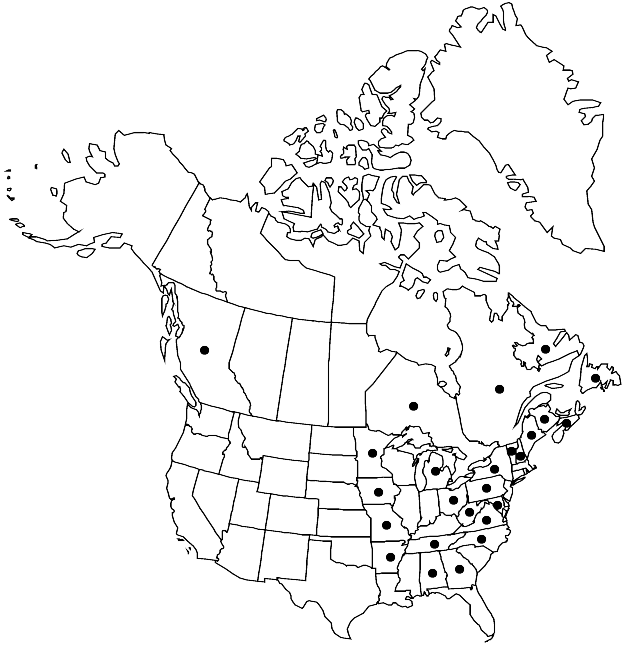Mnium stellare
Sp. Musc. Frond., 191, plate 45, figs. 1–4. 1801.
Plants 0.5–2 (–5) cm. Stems red or reddish-brown. Leaves green to dark green, slightly contorted and undulate when dry, ovate-elliptic or elliptic, 1.5–2.5 mm; base short to long-decurrent; margins green, 1-stratose, entire or weakly toothed distally, rarely to below mid leaf, teeth single, small, blunt (often rounded), occasionally somewhat paired; apex acute, rounded-acute, or obtuse, sometimes short-apiculate; costa ending well before apex, distal abaxial surface smooth; medial laminal cells ± isodiametric or short-elongate, (15–) 20–32 µm, slightly smaller near margins, not in diagonal rows, sometimes in weak longitudinal rows, weakly collenchymatous, blue postmortal color present in cells; marginal cells indistinctly differentiated from medial cells, short-linear or rhomboidal, in 1 (or 2) rows. Sexual condition dioicous. Seta single. Capsule pale to dark-brown, 2–3 mm; operculum conic-mammillate; exostome yellowish-brown. Spores 20–29 µm.
Phenology: Capsules mature late spring.
Habitat: Base of trees, stumps, soil banks, soil over rock, moist shaded sites
Elevation: low to moderate elevations
Distribution

B.C., N.B., Nfld. and Labr., N.S., Ont., Que., Ala., Ark., Ga., Iowa, Maine, Md., Mich., Minn., Mo., N.H., N.Y., N.C., Ohio, Pa., Tenn., Vt., Va., W.Va., Europe, Asia, Africa
Discussion
Selected References
None.